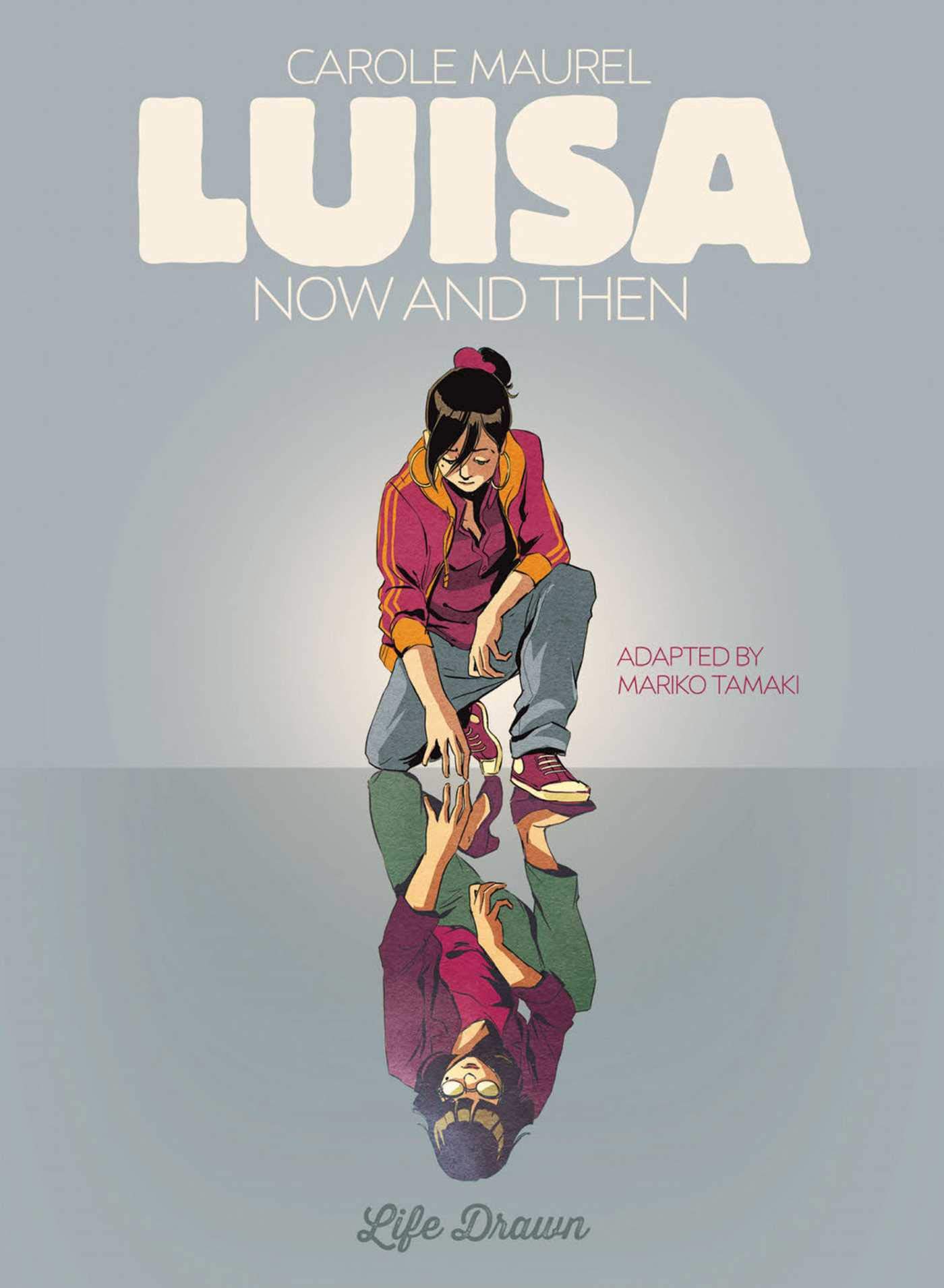
By Carole Maurel, adapted by Mariko Tamaki & translated by Nanette McGuiness (Humanoids/Life Drawn)
ISBN: 978-1-59465-643-9 (TPB/Digital edition)
Win’s Christmas Gift Recommendation: Beguiling Fantasy Unwrapped… 9/10
The concept of time travel is infinitely appetising and irresistibly seductive. The literary conceit offers limitless potential for stories ranging from colossal cosmic Armageddons to last-chance salvation gambits; all of history and the imagination as playground and stage; the use of past and future as a Petrie dish for social satire and cultural exploration, and even fantastical magical quests course-correcting lives and providing deeply personal, painfully intimate second chances for the confused, bewildered or simply lovelorn.
Luisa, Ici et là is one of the latter: a compelling and beguiling small story and little miracle by Carole Maurel that first appeared in 2016 and finds us English-speakers courtesy of Humanoid’s Life Drawn imprint.
It’s a sweet and oft-told tale given a stylish and welcoming contemporary gloss thanks to its wonderfully engaging lead character(s) who transforms a regulation coming-of-age parable into a heart-warming plea for understanding and – where necessary – forgiveness.
It begins as 15-year old Luisa Arambol gets off a bus. Exhausted and frustrated by discord at home in Chartres, she’s fallen asleep, missed her stop and awoken in Paris. She’s not aware of it yet, but she’s also journeyed from 1995 to 2013…
Across town, 33-year old Luisa Arambol is bitching to friend and workmate Farid. He’s heard it all before: the job sucks, she’s getting old, she drinks too much and has accomplished nothing. Worst of all, yet another man didn’t work out…
After panicking whilst trying to buy a phonecard – even the money is different here and everyone has a phone in their pocket now! – young Luisa is rescued by concerned observer Sasha who tries to help out the increasingly distressed kid. The child wants to ring her mother but cannot get through and is spiralling…
Hearing her talk and seeing what she’s wearing and carrying, Sasha soon suspects something incredible has occurred. After all, what teenager doesn’t recognise a computer tablet?
A quiet chat stabilises the kid long enough for Sasha to learn that Luisa has an aunt living in the same building she’s just moved into. It turns out Aurelia Arambol’s fifth floor flat is directly opposite Sasha’s new home, but it’s no longer occupied by the odd, ostracised single lady nobody back home will ever talk about. Little Luisa gets a big shock when that door opens and she meets her world-weary, dream-crushed, spinster older self.
Moreover, both versions instantly and instinctively realise who the other is…
Once upon a time an ambitious schoolgirl had dreams of being an art photographer but life has whittled that dream down to something far more mundane. Full grown her was left the flat by Aurelia – for reasons she still can’t fathom – and her spiky, frosty, naturally defensive state is inexplicably heightened by Sasha. Despite herself, older Luisa can’t stop staring at her new neighbour, even taking covert pictures of her, and is deeply troubled by an erotic dream featuring her…
When the object of her fascination is abruptly called away, Luisa reluctantly takes charge of the underage runaway and the situation worsens. Shared stories of mutual pasts and futures take a wild turn as aspects of their so-different personalities begin to transfer. Now-Luisa rediscovers her endless, long-vanished joie-de vivre and party spirit – and even 20-20 vision – and seems to look younger every day, just as Then-Luisa becomes sullen, responsibility-burdened, grey-haired, morose and short-sighted. Moreover, when they touch, their bodies seem to merge and coalesce…
And so begins a clash of wills and resolution of long-unfinished business found to have started on the day teen Luisa cruelly spurned an innocently impulsive overture from “out” and persecuted classmate Lucy.
That event was exacerbated by increased bullying at school and brutally reinforced at home by her own mother’s rigorous rejection of such shocking deviant behaviour as utterly unnatural, sparking a decades-long crusade to find Luisa a man…
Confused and upset, little Luisa acted up, got on a bus and ended up now while her older self just lived a lie for years…
The merging and trading of characteristics lends urgency to affairs before a long-deferred and dreaded confrontation with the Luisas’ mother generates surprising revelations about Aurelia, exposes the unknown fate of Lucy and prompts a complete revision of those attitudes that have shaped and repressed the modern-day doppelganger…
Addressing her family’s ingrained bigotry and intolerance and at last acknowledging and accepting she doesn’t just like boys or have to settle for a man is merely the first step in Luisa’s reunification and readjustment, auguring massive changes for all and forever that will begin when her fresher self at last boards a bus for home…
Refreshingly honest, charmingly blunt and captivatingly funny whist maintaining a sensitive neutrality of opinion – or prejudice – over sexuality and choices, Luisa: Now and Then sparkles with wit and charm: a sophisticated yet simple saga of self-examination that will delight all who read it, embracing the fanciful whimsy of cinema classics like The Enchanted Cottage or the Peter Ustinov’s 1948 film Vice Versa.
Luisa, Ici et là © 2016 La Boîte à Bulles et Carole Maurel. All rights reserved.
